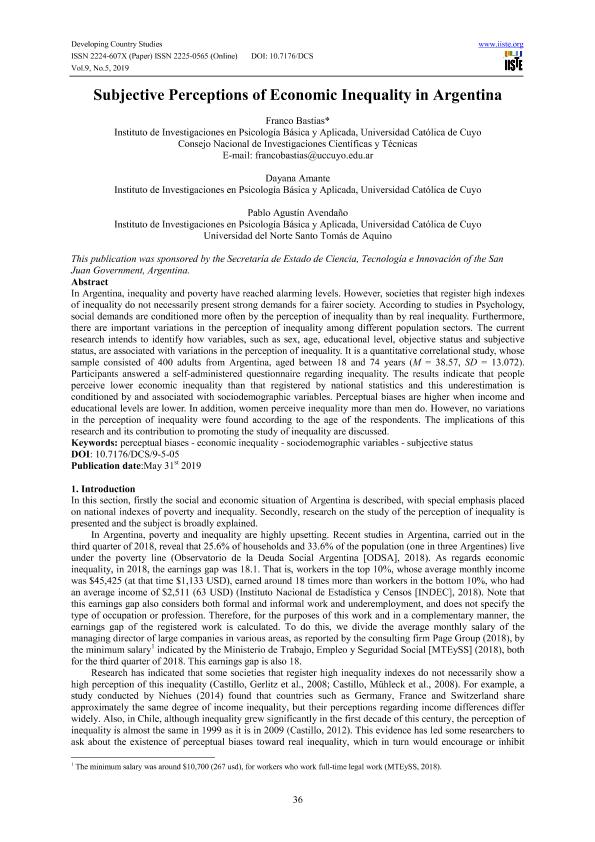Artículo
Subjective perceptions of economic inequality in Argentina
Fecha de publicación:
05/2019
Editorial:
International Institute for Science, Technology and Education
Revista:
Developing Country Studies
ISSN:
2224-607X
e-ISSN:
2225-0565
Idioma:
Inglés
Tipo de recurso:
Artículo publicado
Clasificación temática:
Resumen
In Argentina, inequality and poverty have reached alarming levels. However, societies that register high indexes of inequality do not necessarily present strong demands for a fairer society. According to studies in Psychology, social demands are conditioned more often by the perception of inequality than by real inequality. Furthermore, there are important variations in the perception of inequality among different population sectors. The current research intends to identify how variables, such as sex, age, educational level, objective status and subjective status, are associated with variations in the perception of inequality. It is a quantitative correlational study, whose sample consisted of 400 adults from Argentina, aged between 18 and 74 years (M = 38.57, SD = 13.072). Participants answered a self-administered questionnaire regarding inequality. The results indicate that people perceive lower economic inequality than that registered by national statistics and this underestimation is conditioned by and associated with sociodemographic variables. Perceptual biases are higher when income and educational levels are lower. In addition, women perceive inequality more than men do. However, no variations in the perception of inequality were found according to the age of the respondents. The implications of this research and its contribution to promoting the study of inequality are discussed.
Archivos asociados
Licencia
Identificadores
Colecciones
Articulos(CCT - SAN JUAN)
Articulos de CENTRO CIENTIFICO TECNOLOGICO CONICET - SAN JUAN
Articulos de CENTRO CIENTIFICO TECNOLOGICO CONICET - SAN JUAN
Citación
Bastias, Franco Emmanuel; Amante Martin, Dayana Belén; Avendaño, Pablo Agustin; Subjective perceptions of economic inequality in Argentina; International Institute for Science, Technology and Education; Developing Country Studies; 9; 5; 5-2019; 36-42
Compartir
Altmétricas




